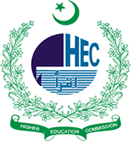Comparison of Life Skills between Intercollegiate Athletes and Non-Athletes of Government Girls Higher Secondary Schools of District Mardan, Pakistan
DOI:
https://doi.org/10.51846/the-sky.v7i0.2505Keywords:
Life skills, Intercollegiate Athlete, Athlete and Non-athlete comparisonAbstract
This study aimed to compare the life skills about interpersonal relationship skills, stress management skills, and decision-making skills amongst intercollegiate athletes and non-athletes of government girls’ higher secondary schools in district Mardan, Pakistan. The researcher followed a descriptive survey research design to meet the set objectives of the study. girl athletes and non-athletes from Government Higher Secondary schools of District, Mardan with age range 15-21 years of class 9th, 10th, 1st year, and 2nd year constituted the target population for the current study. A close-ended adapted questionnaire University of Pretoria (South Africa) using a Likert scale from “strongly disagree” to “strongly agree” was used to collect the required information from the participants consisting of girls’ athletes and non-athletes from government higher secondary schools of district, Mardan. A total of 568 questionnaires were administered among the participants and 468 questionnaires with (an 82.39%) ratios were received back. For an inclusive assessment of life skills, different attributes were labeled to each life skill, whereas all 34 items were assigned to 04 skills in the questionnaire. The collected data were properly tabulated and processed through descriptive and inferential statistical techniques. The findings of the study indicated that sport has produced a positive role in the development of life skills among athletes as compared with non-athletes. This finding can be helpful for those who intend to develop and promote the sport in their respective areas. It has been concluded that participants acknowledged the role that sport has essential in the development of life skills such as interpersonal relationships (2.90), stress management (2.37), decision making (2.66), and problem-solving skills (2.49). However, it was noticed that urban school athletes produced a higher mean score on one life skill such as interpersonal relationships (2.93) and the rest of life skills mean scores are lower. It is recommended that school sports participation of girls may be ensured/enhanced to develop and promote the positive life skills necessary for products as well as a dynamic role in society.
Downloads
Published
How to Cite
Issue
Section
License
Copyright (c) 2023 THE SKY-International Journal of Physical Education and Sports Sciences (IJPESS)

This work is licensed under a Creative Commons Attribution-ShareAlike 4.0 International License.
COPYRIGHT POLICY
UOL journals follow an open-access publishing policy and full text of all articles is available free, immediately upon acceptance. Articles are published and distributed under the terms of the CC BY-SA 4.0 International License. Thus, work submitted to UOL Journals implies that it is original, unpublished work of the authors; neither published previously nor accepted/under consideration for publication elsewhere.
Authors will be responsible for any information written/informed/reported in the submitted manuscript. Although we do not require authors to submit the data collection documents and coded sheets used to do quantitative or qualitative analysis, we may request it at any time during the publication process, including after the article has been published. It is author's responsibility to obtain signed permission from the copyright holder to use and reproduce text, illustrations, tables, etc., published previously in other journals, electronic or print media.
Conflict of interest statements will be published at the end of the article. If no conflict of interest exists, the following sentence will be used: "The authors declare no conflict of interest." Authors are required to disclose any sponsorship or funding received from any institution relating to their research. The editor(s) will determine what disclosures, if any, should be available to the readers.
Authors are not permitted to post the work on any website/blog/forum/board or at any other place, by any means, from the time such work is submitted to UOL journals until the final decision on the paper has been given to them. In case a paper is accepted for publication, the authors may not post the work in its entirety on any website/blog/forum/board or at any other place, by any means, till the paper is published in UOL Journals.
The authors may, however, post the title, authors’ names and their affiliations and abstract, with the following statement on the first page of the paper - "The manuscript has been accepted for publication in UOL Journals". After publication of the article, it may be posted anywhere with full journal citation included.
All articles published in UOL journals are open-access articles, published and distributed under the terms of the Creative Commons Attribution-ShareAlike 4.0 International License which permits remixing, transformation, or building upon the material, provided the original work is appropriately cited mentioning the authors and the publisher, as well as the produced work is distributed under the same license as the original.
In the future, UOL may reproduce printed copies of articles in any form. Without prejudice to the terms of the license given below, we retain the right to reproduce author's articles in this way.
Brief Summary Of The License Agreement
By submitting your research article(s) to UOL Journal(s), you agree to Creative Commons Attribution-ShareAlike 4.0 International License which states that:
Anyone is free:
o To copy and redistribute the material in any medium or format
o To remix, transform, or build upon the material for any purpose, even commercially
Provided:
o The author and the publisher have been appropriately credited
o The link to license is provided
o Indicated if any changes were made
o The material produced is distributed under the same license as the original







